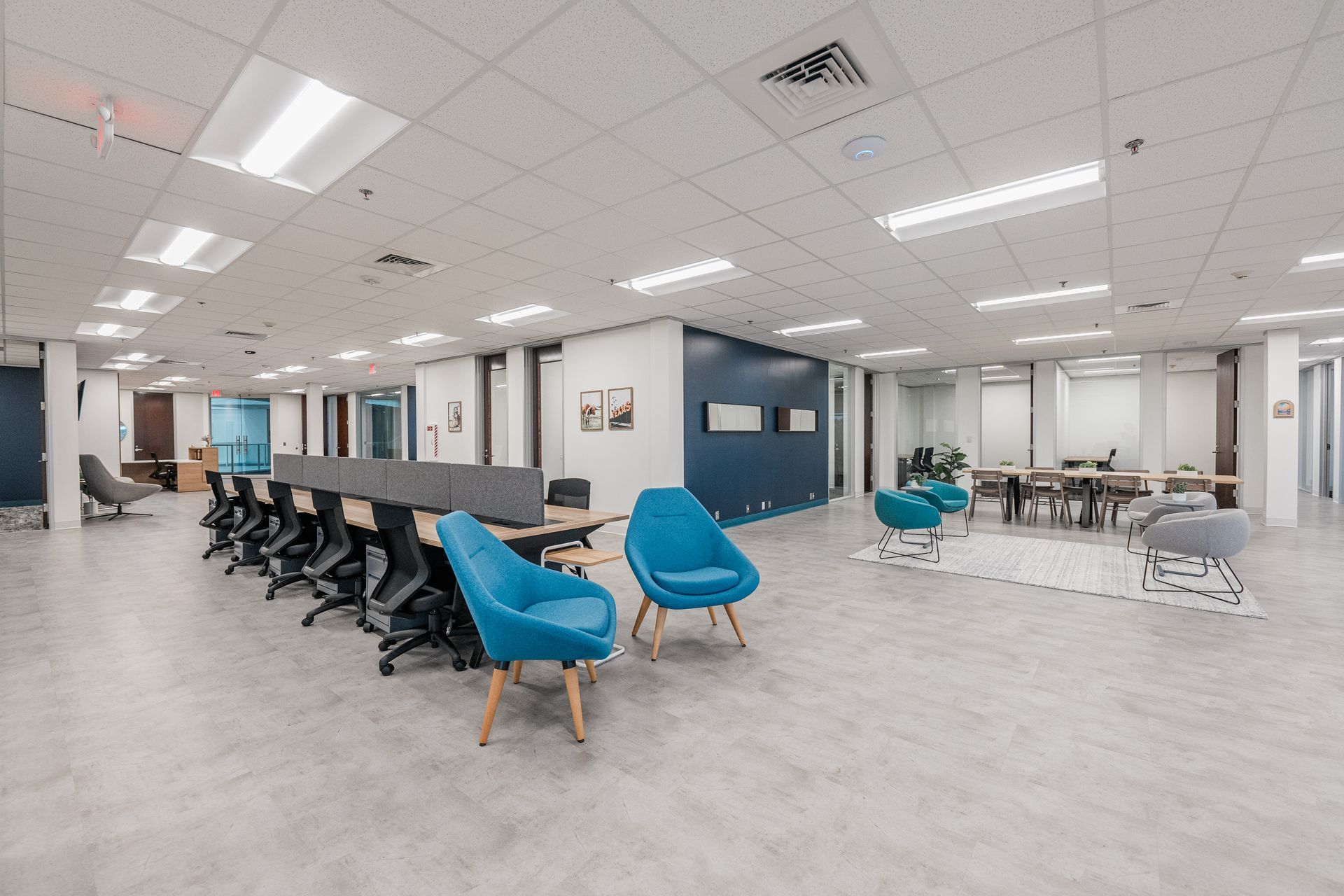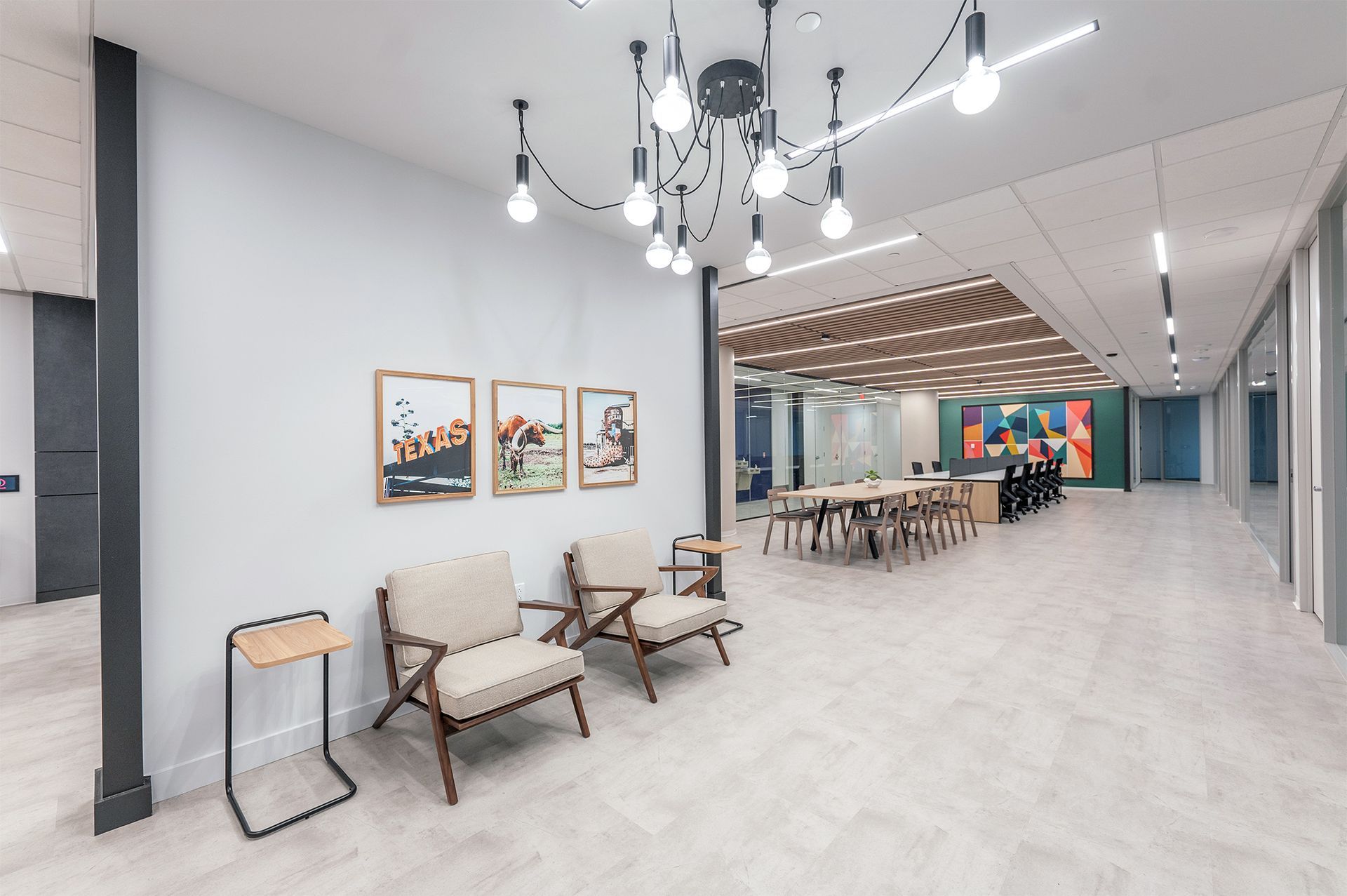What is a Shared Office Space, and How is it Different from Coworking Spaces?
Brad True • August 12, 2022
During the pandemic, the United States saw an increase in new small businesses, specifically a 24.6% increase in 2021, and the majority of that growth came from the non-classified sector, where innovative entrepreneurs thrive. A shift from traditional business has also come with a shift from traditional office spaces. Having an alternative work arrangement is ideal, especially if you have trouble focusing at home, but some have been unsure about what shared office space is versus a coworking space.
Our team will help you define the difference between these two work environments and help you decide which one is right for you. We put together the details of what defines each space, who they work best for, and the disadvantages of each. By the end of this article, you should have a solution to decide between office sharing and coworking space.
Shared Office Space
A shared office space, also known as office sharing, is when a real estate management company with large commercial space offers smaller office space to small companies. A variety of different people work around you, but they are usually in an enclosed private office.
Shared office space is ideal for a small business. For example, a startup may not need a permanent office location, but a dedicated workspace allows for better client meetings and collaboration with team members on larger projects. They can avoid large office rental rates and keep overhead costs low in their budget.
A couple of disadvantages of a shared workspace are potentially being distracted by the other teams, the potential of being in close proximity to a competitor, limited customization, and a work culture that could end up matching the workspace culture rather than your company’s unique culture.
Coworking Workspace
A coworking or collaborative workspace is more of open space with large desks and meeting rooms for reservation. You could share desks with a remote employee, a lifestyle entrepreneur, or various other freelancers at any given time.
Coworking spaces are ideal for those without a central office. It’s an effective method to maintain a work-life balance, and these spaces are generally equipped with complimentary internet services and other beneficial features. Another perk is that you can gain a sense of community with the people you typically work around, and it may lead to partnerships.
The downside is there can be no permanence in these spaces. You are subject to the wills of the “coworkers,” who may take your preferred spot or, worse, limited space options depending on the time and day. And while noise-canceling headphones can be a great asset to help focus, if you are easily distracted by other people, a coworking space may also not be the best place for you since other people surround you.
A Community Built for One Purpose
Office sharing and coworking space—there’s no better option than the other, but now that you know a little more about a shared office space versus a coworking space, you can make the best decision for your business. There is an alternative solution for large and small companies: The Cannon!
We understand the need for flexibility, and that’s why our Houston-based workspaces have office sharing and coworking spaces. You can easily switch between focusing on work in private offices or a more social work environment in our open desk spaces. Plus, when you have a membership for The Cannon workspaces, you get 24/7 access, free parking, free WiFi, and the ability to go to any of our six locations—West Houston,
Downtown,
Post Oak,
Esperson,
Uptown Sports + Media, and
Galveston at the MarMo.
For those outside of the Houston area, we may not have a physical workspace for you, but we do have an incredibly supportive community filled with professionals.
Cannon Connect is where you can find a wide range of educational resources for every entrepreneur at any stage, whether your business idea is still on a napkin or you’re looking to grow through acquisition. We also have an advisor network, a community web directory, service provider connections, and a unique crowdfunding platform. Plus, when you join Cannon Connect, you have access to sign up for our
membership benefits program, as long as your company has at least two employees.
The Cannon aims to build the only global community that is open to all current and future innovators, entrepreneurs, small businesses, investors, and service providers—all while being relentlessly dedicated to entrepreneurial support, programming, and connections. By expanding virtually and into physical locations around the world, we are helping innovators of all backgrounds and locations, from small business owners to intrapreneurs at large corporations.
Brad True
Brad oversees all overall day-to-day operations of The Cannon and its growing community, including all current and future Cannon locations and Cannon Connect, The Cannon's new online platform. He holds an undergraduate degree in marketing from Texas A&M and a graduate degree from the University of Oklahoma.











